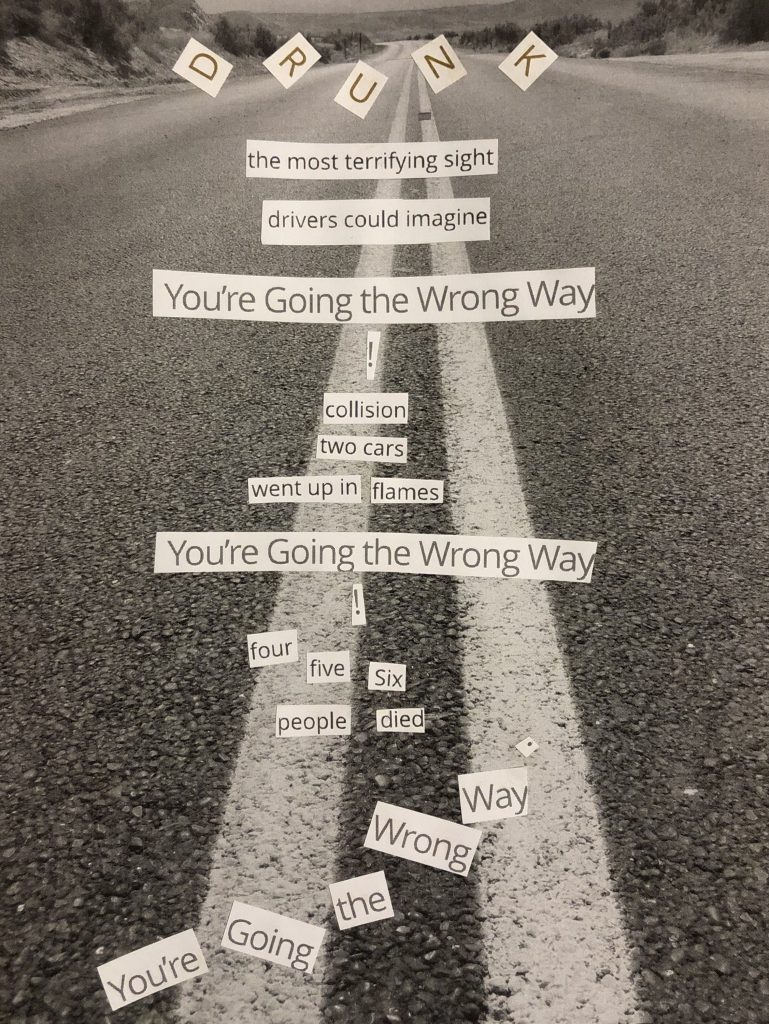By Emma Igoe
Claudia Rankine’s Citizen: An American Lyric, is a very unique piece of literature not only because of the way it was written, but also because of the given effect this story has upon the reader. This book encourages the reader to think critically about racism and the subtle racial comments that occur every single day, which go unnoticed at times. By Rankine writing about these different stories, she is bringing situations to light that are very relevant and should be more widely known. She is helping those who are unaccustomed to become more familiar with the everyday struggles of others by making it easy to place yourself in someone else’s shoes.
My main focus in this blog post is how Rankine is so effortlessly able to insert the reader into each and every story, whether it’s as the victim or as a witness. Rankine shares stories that formulate a lot of different emotions from the readers, which is what makes this book so successful and relevant. Whether you have personally been victimized because of the color of your skin, or you are just a bystander watching this negative behavior occur, reading this book makes the reader want to put a stop to these degrading comments. As a reader, I did not want to be a bystander anymore considering any small action might be the start of stopping this unnecessary language. Although comments and actions made can either be large or super small, any comment at all has the ability to affect someone. This can take an immense toll on a person’s mental and physical health in more ways than we know, especially when belittling comments are made every day.
The story Rankine shares of a couple going to see the film The House We Live In is a story that was able to develop strong feelings for me personally. Ironically, this is the first film about race to focus not on individual attitudes and behavior, but on the ways our institutions and policies advantage some groups at the expense of others. While this couple is out, they arrange a friend to pick up their child from school. They get a call from their neighbor who says there is a “menacing black guy casing both your homes”. (20) The couple proceeds to tell their neighbor this is a friend who is babysitting whom he has met before, but the neighbor says “No, it’s not him. He’s met your friend and this isn’t that nice young man. Anyway, he wants you to know, he’s called the police.” (20) When the couple calls their friend to ask if there is a man outside, he says if anyone was outside he would see because that’s where he is at that very moment. When the couple arrives home, the neighbor and friend are speaking and the four cop cars that the neighbor was responsible for have left the scene. This entire situation could have been avoided if the couple’s neighbor set his pride aside and approached the friend in a reasonable manner. The neighbor was very ignorant toward this harmless man babysitting his friend’s child which angered me because this all occurred based on a stereotypical thought.
Another example of when Rankine makes the reader feel all these certain levels of discomfort is in a very short story given to us about a man, with the intention of being kind to a woman but it does not exactly end this way. Some of the time, a person does not intentionally make a racial comment to hurt someone else, which is exactly the problem. It has become normalized to not think twice about saying something so little because you think it will have no effect on someone, but when these comments build up each and every day, they begin to weigh down the individual. In this story, a man shows a picture of his wife who is African American to another African American woman. She continues to say she is beautiful and he says, “beautiful and black, like you.” Although this comment made by this man is so small, there is such power carried behind his words. This man is marginalizing this woman and basically treating her as an object, as a color, and not as a person.
In conclusion, this book pressures the reader to encompass all of the emotions that Rankine feels on a daily basis. As a reader, you cannot ignore such strong messages being told to you as clearly as Rankine makes them in Citizen: An American Lyric. When being told these personal stories of innocent people being belittled, it makes the reader want to do everything to stop this unnecessary behavior and to no longer be a bystander in the crowd watching things happen.
Discussion Questions:
- During which part of the book have you felt the largest urge to want to help the victim of these microaggressions made so often?
- What are some examples of a time when you have been victimized for anything at all, and how did you feel at that exact moment?
Works Cited
Rankine, Claudia, 1963- author. Citizen: An American Lyric. Minneapolis, Minnesota: Graywolf Press, 2014.
Excerpt From: Claudia Rankine. “Citizen.” Apple Books. https://books.apple.com/us/book/citizen/id908342605
Adelman, Larry. “RACE- The Power of an Illusion.” PBS, Public Broadcasting Service, www.pbs.org/race/000_About/002_04-about-03.htm.

